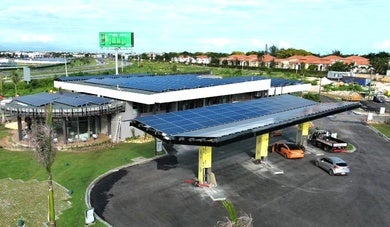Nothing is Fated: Shaping an Equitable Digital Future Must be a Collective Endeavor

As Karim Lesina, EVP of Millicom, correctly points out, in the ever-evolving landscape of technology and connectivity, the future is not a predetermined destination awaiting our arrival; rather, it is a realm we actively shape and build together.
The digital future is not guaranteed; it gets shaped through the collaborative efforts of all stakeholders involved. This sentiment lies at the heart of major telecommunications companies, highlighting the crucial role of collective contributions in steering us toward a future that embraces efficiency, equity, and opportunity.
The indispensable role of collaboration among various actors within the digital ecosystem is a critical factor for success. From telecommunications giants to policymakers, from innovators to consumers, investors, and development banks, each participant plays a vital role in shaping the trajectory of digitization.
Additional reading
- Digital Connectivity: Oil for the 21st Century
- The Great Tech Revolution: Artificial General Intelligence & Multilateral Development Bank
In recognizing this interdependence, telecommunications companies acknowledge that a shared vision is essential for harnessing the full potential of the digital era.
Efficiency and equity are the twin pillars upon which any successful connectivity policy must rest. It is crucial to ensure that everyone can benefit from connectivity in an era of rapid technological advancement.
This requires deploying robust infrastructure and implementing policies that bridge the digital divide and empower marginalized communities. By fostering an environment of inclusivity and accessibility, telecommunications companies pave the way for a more equitable digital future.
However, achieving these goals necessitates the concerted efforts of all stakeholders involved. As key architects of the digital landscape, telecommunications companies bear a significant responsibility in this regard.
By endorsing initiatives prioritizing efficiency, equity, and collaboration, these companies demonstrate their commitment to advancing society's collective interests.
At its core, telecommunications companies reflect a recognition of the transformative power of connectivity. In an increasingly interconnected world, digitization has the potential to revolutionize every aspect of our lives, from education and healthcare to commerce and governance.
Yet, realizing this potential requires more than technological advancement; it demands a shared commitment to fostering an ecosystem that values inclusivity, innovation, and social responsibility.
As we navigate the complexities of the digital future, we must do so with a collective mindset that transcends individual interests and embraces the common good. By coming together to chart a course toward a more connected, equitable, and sustainable future, we can harness technology's transformative power to build a world that works for everyone.
The major telecommunications companies serve as a testament to the importance of collaboration in shaping the digital future. By recognizing the shared responsibility, we all bear in this endeavor, we can work towards creating a more connected, inclusive, and prosperous world for generations to come.
Latest posts
- A Few Very Good Reasons to Protect the Integrity of Gender Bonds
- Sharing Knowledge, Key to Transition to a Sustainable Economy: Our Experience in Mexico
LIKE WHAT YOU JUST READ?
Subscribe to our mailing list to stay informed on the latest IDB Invest news, blog posts, upcoming events, and to learn more about specific areas of interest.
Subscribe


